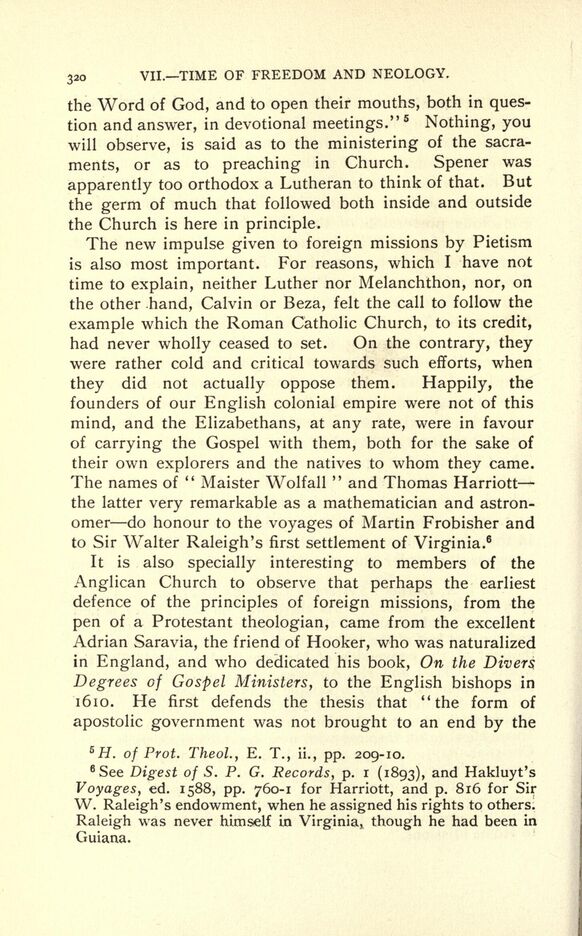
Full resolution (JPEG) - On this page / på denna sida - VII. The Church in the “Time of Freedom” and Period of Neology (1718—1811 A.D.)

<< prev. page << föreg. sida << >> nästa sida >> next page >>
Below is the raw OCR text
from the above scanned image.
Do you see an error? Proofread the page now!
Här nedan syns maskintolkade texten från faksimilbilden ovan.
Ser du något fel? Korrekturläs sidan nu!
This page has never been proofread. / Denna sida har aldrig korrekturlästs.
320 VII. TIME OF FREEDOM AND NEOLOGY.
the Word of God, and to open their mouths, both in ques
tion and answer, in devotional meetings."
5
Nothing, you
will observe, is said as to the ministering of the sacra
ments, or as to preaching in Church. Spener was
apparently too orthodox a Lutheran to think of that. But
the germ of much that followed both inside and outside
the Church is here in principle.
The new impulse given to foreign missions by Pietism
is also most important. For reasons, which I have not
time to explain, neither Luther nor Melanchthon, nor, on
the other .hand, Calvin or Beza, felt the call to follow the
example which the Roman Catholic Church, to its credit,
had never wholly ceased to set. On the contrary, they
were rather cold and critical towards such efforts, when
they did not actually oppose them. Happily, the
founders of our English colonial empire were not of this
mind, and the Elizabethans, at any rate, were in favour
of carrying the Gospel with them, both for the sake of
their own explorers and the natives to whom they came.
The names of
"
Maister Wolfall
"
and Thomas Harriott
the latter very remarkable as a mathematician and astron
omer do honour to the voyages of Martin Frobisher and
to Sir Walter Raleigh s first settlement of Virginia.
6
It is also specially interesting to members of the
Anglican Church to observe that perhaps the earliest
defence of the principles of foreign missions, from the
pen of a Protestant theologian, came from the excellent
Adrian Saravia, the friend of Hooker, who was naturalized
in England, and who dedicated his book, On the Divers
Degrees of Gospel Ministers, to the English bishops in
1610. He first defends the thesis that "the form of
apostolic government was not brought to an end by the
5
H. of Prot. TheoL, E. T., ii., pp. 209-10.
6
See Digest of S. P. G. Records, p. i
(1893), and Hakluyt s
Voyages, ed. 1588, pp. 760-1 for Harriott, and p. 816 for Sir
W. Raleigh s endowment, when he assigned his rights to others.
Raleigh was never himself in Virginia, though he had been in
Guiana.
<< prev. page << föreg. sida << >> nästa sida >> next page >>